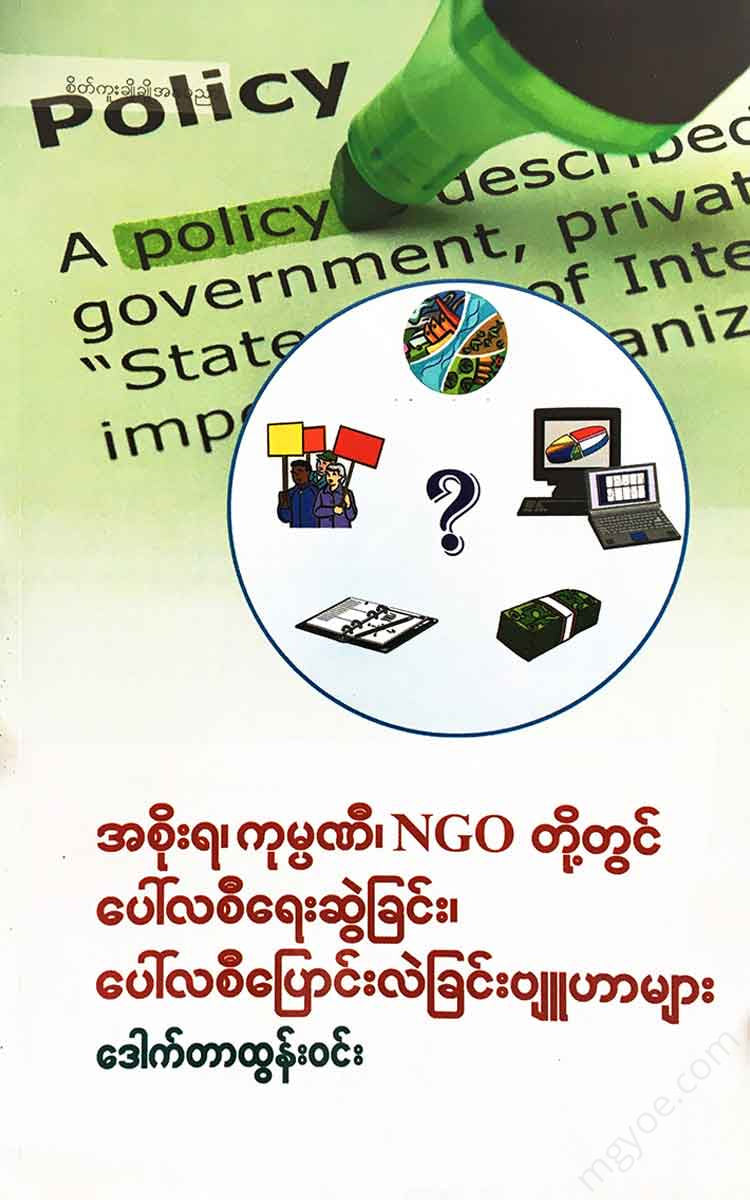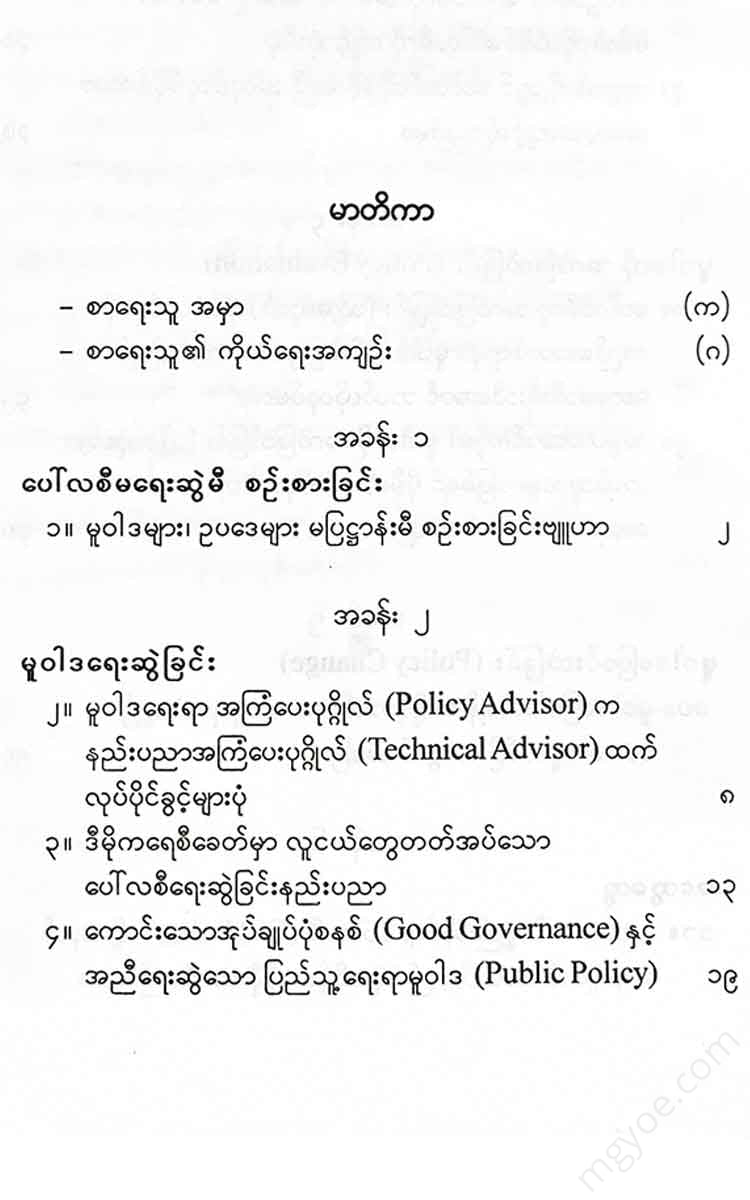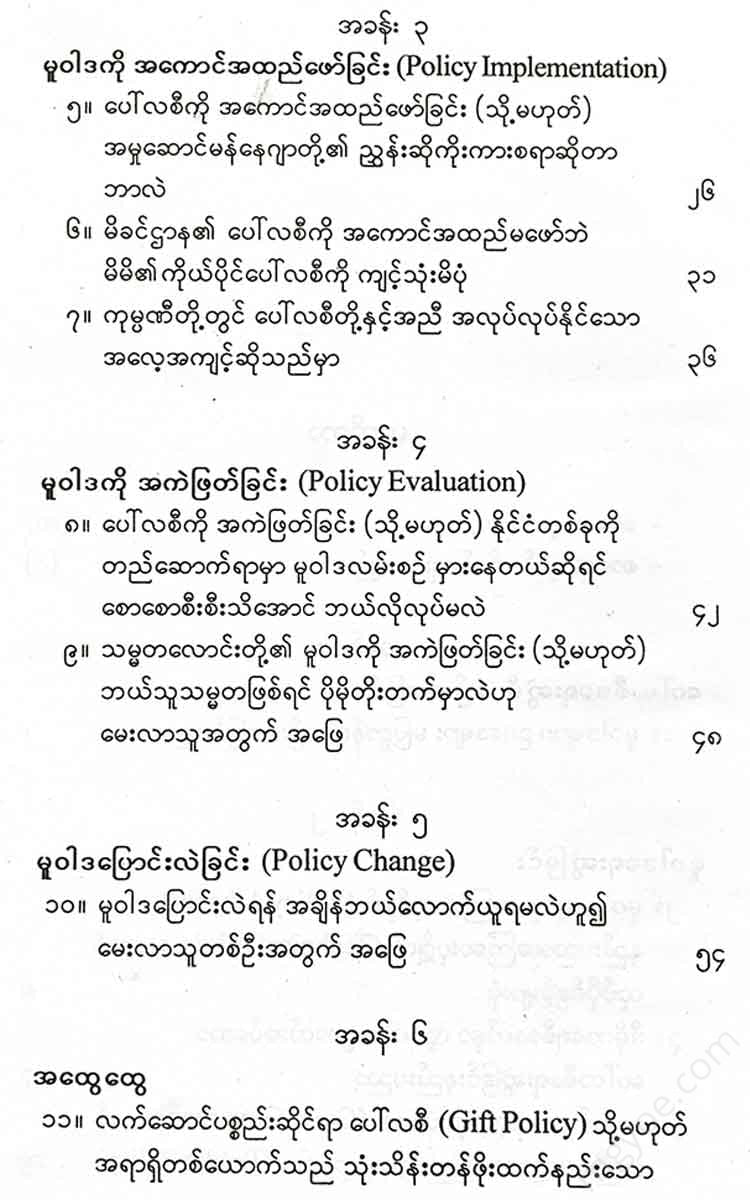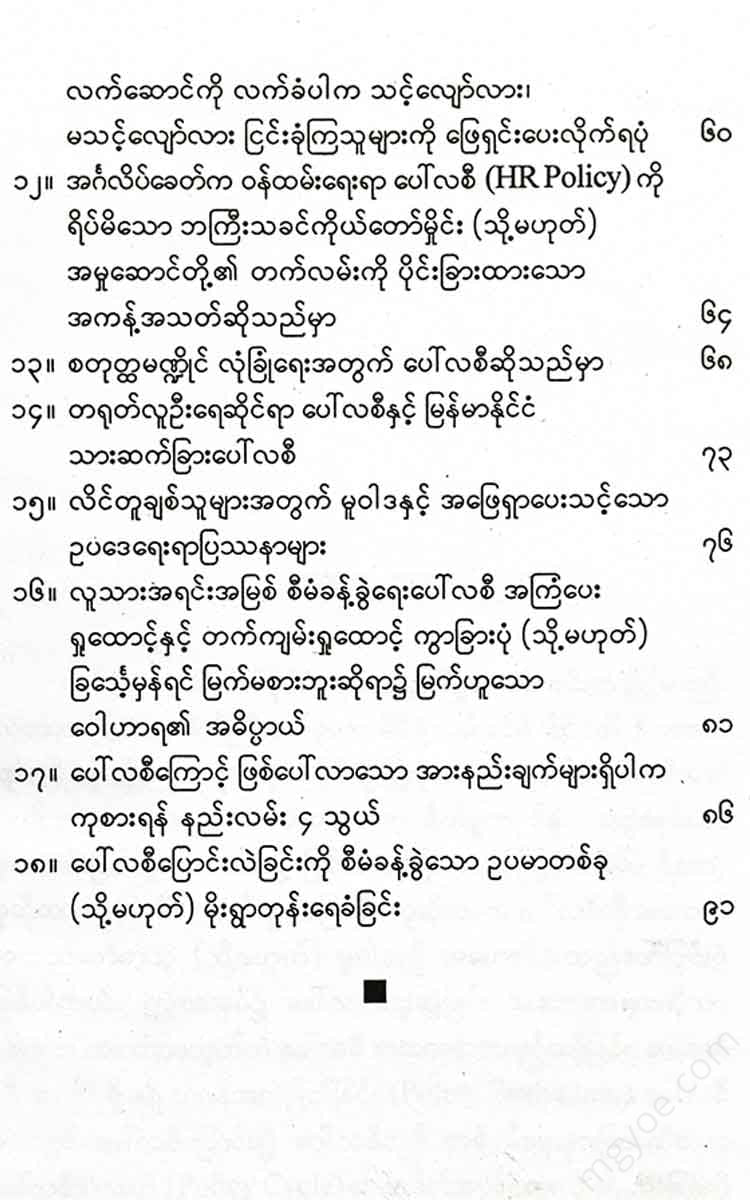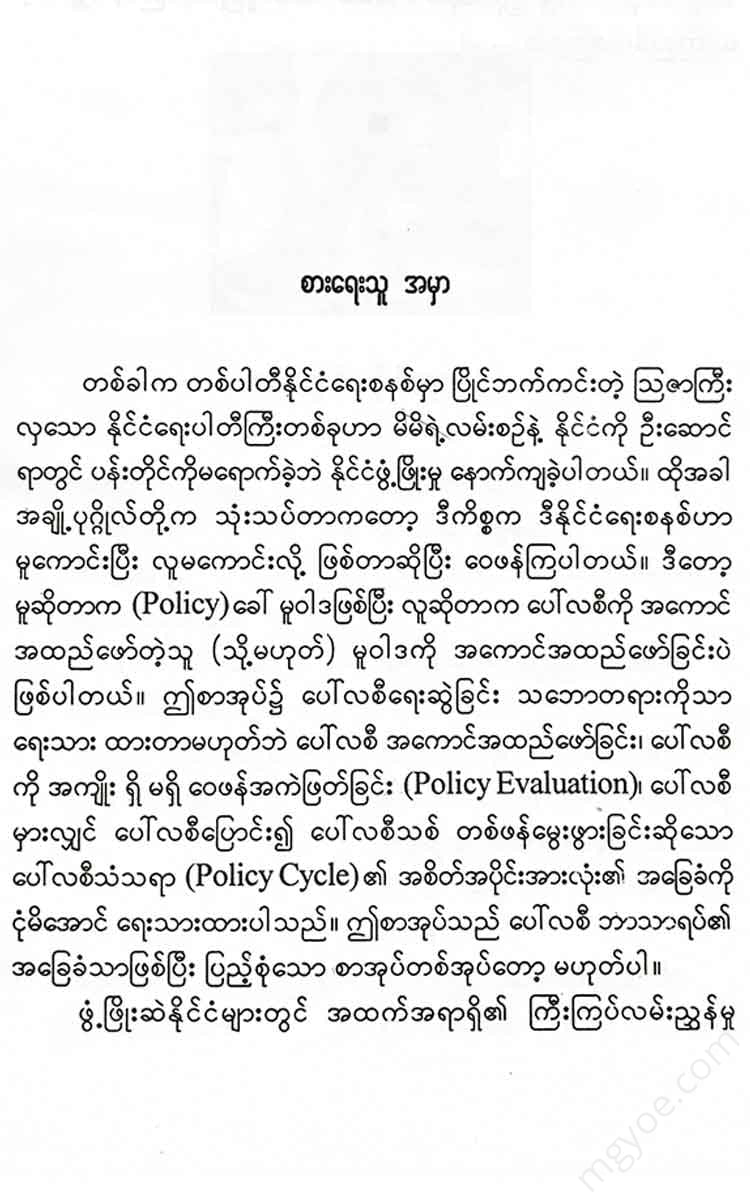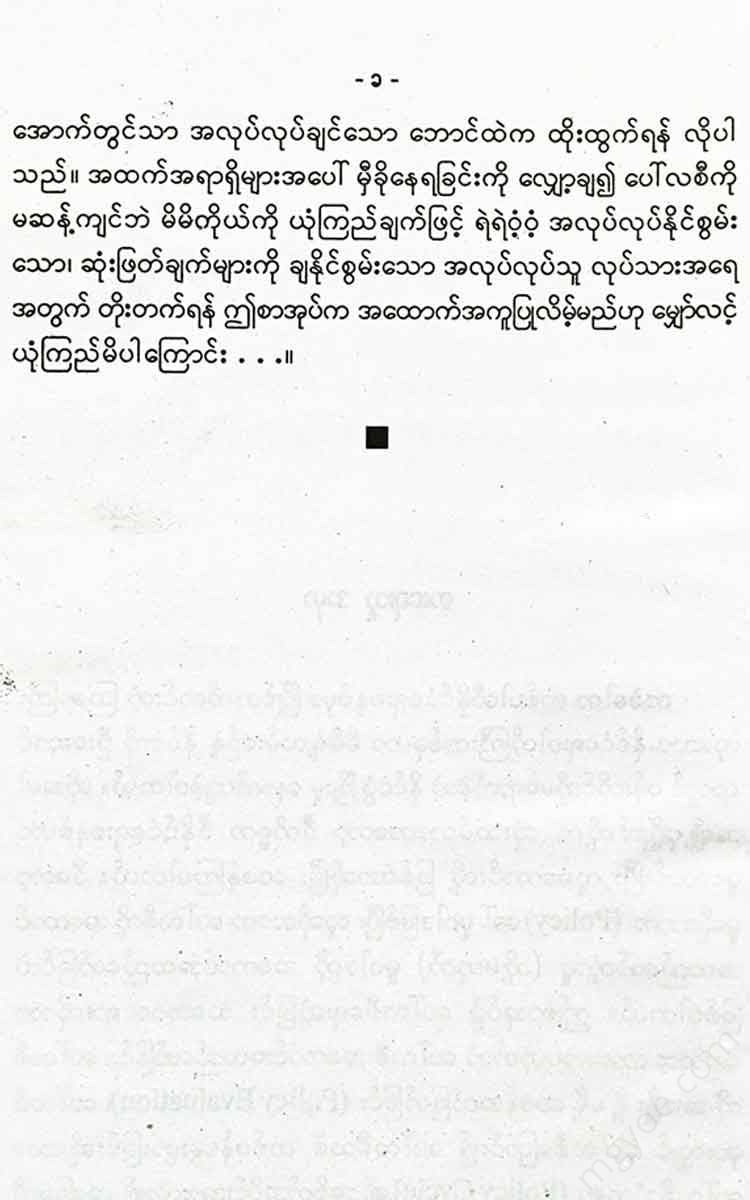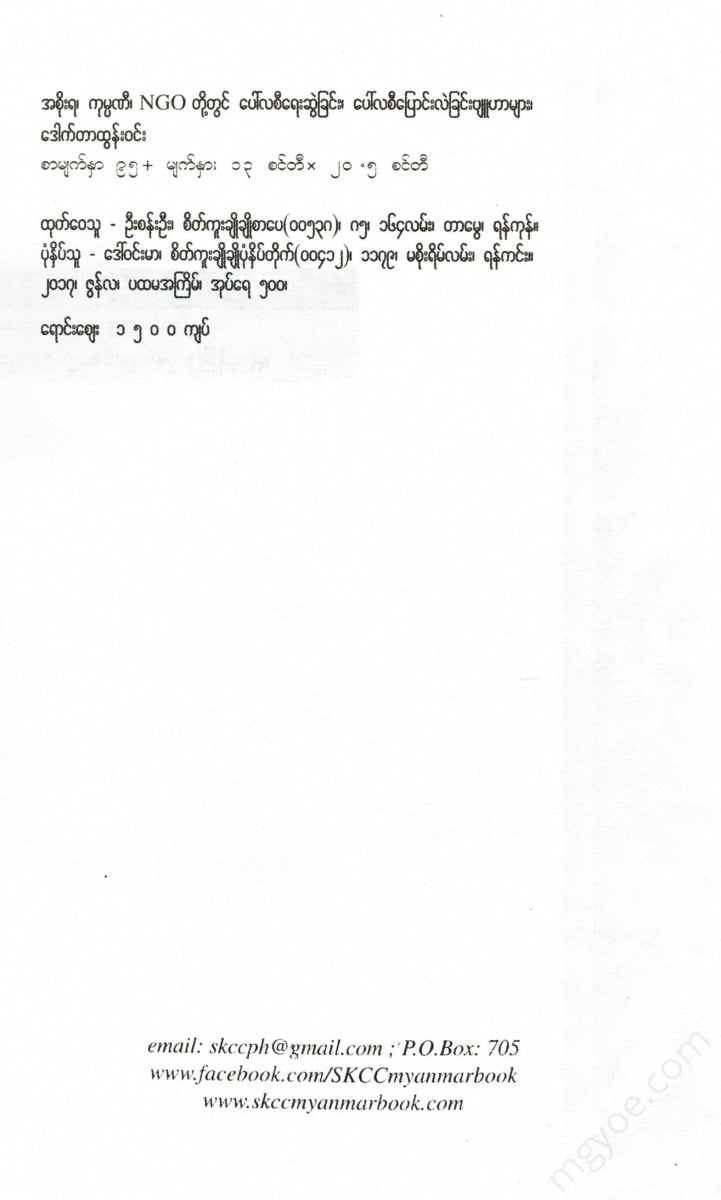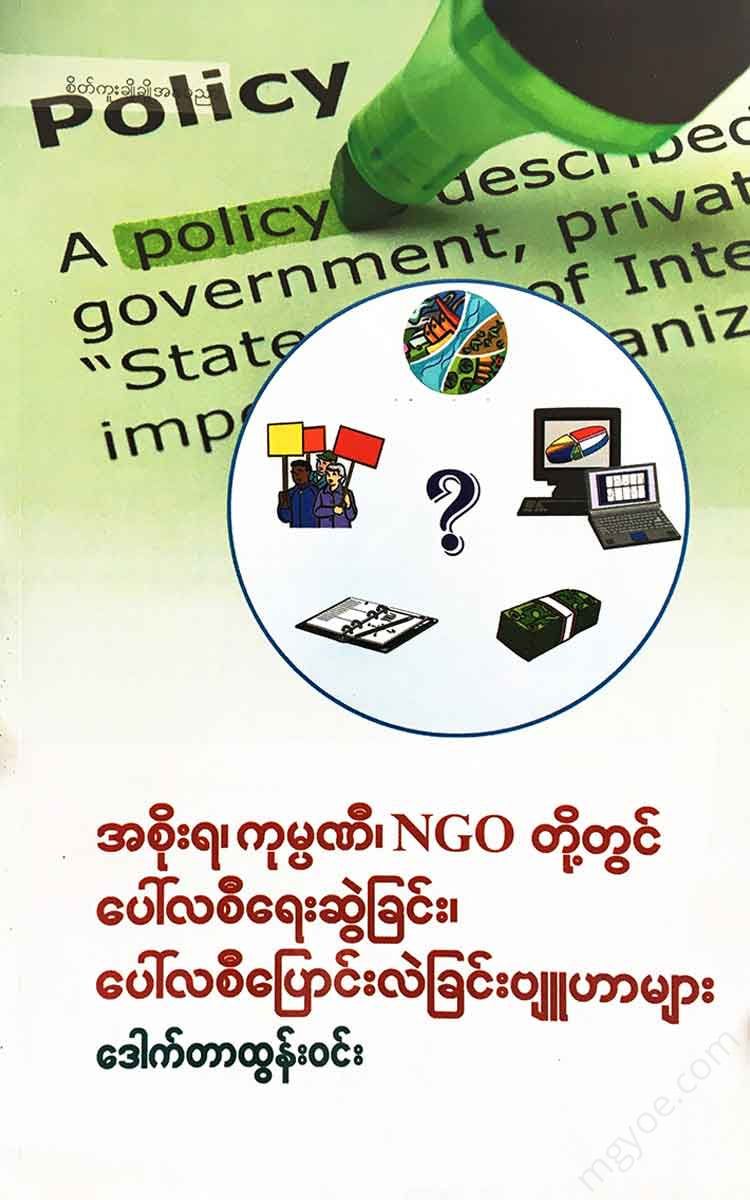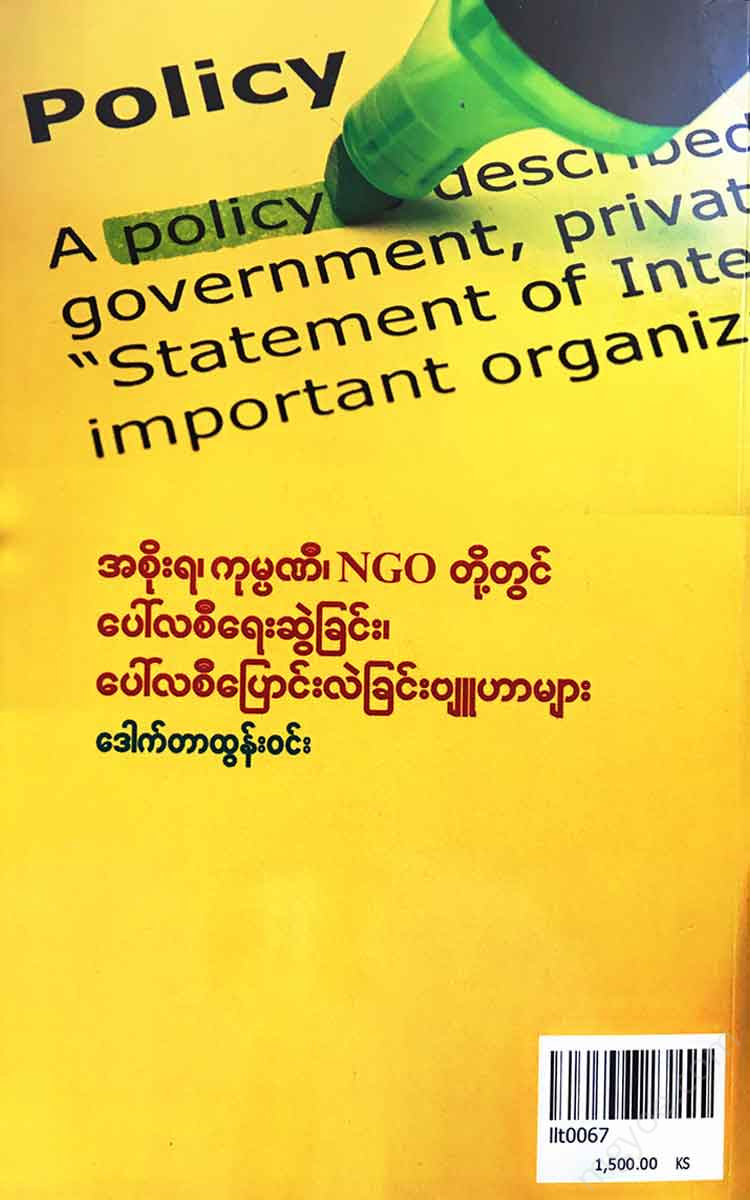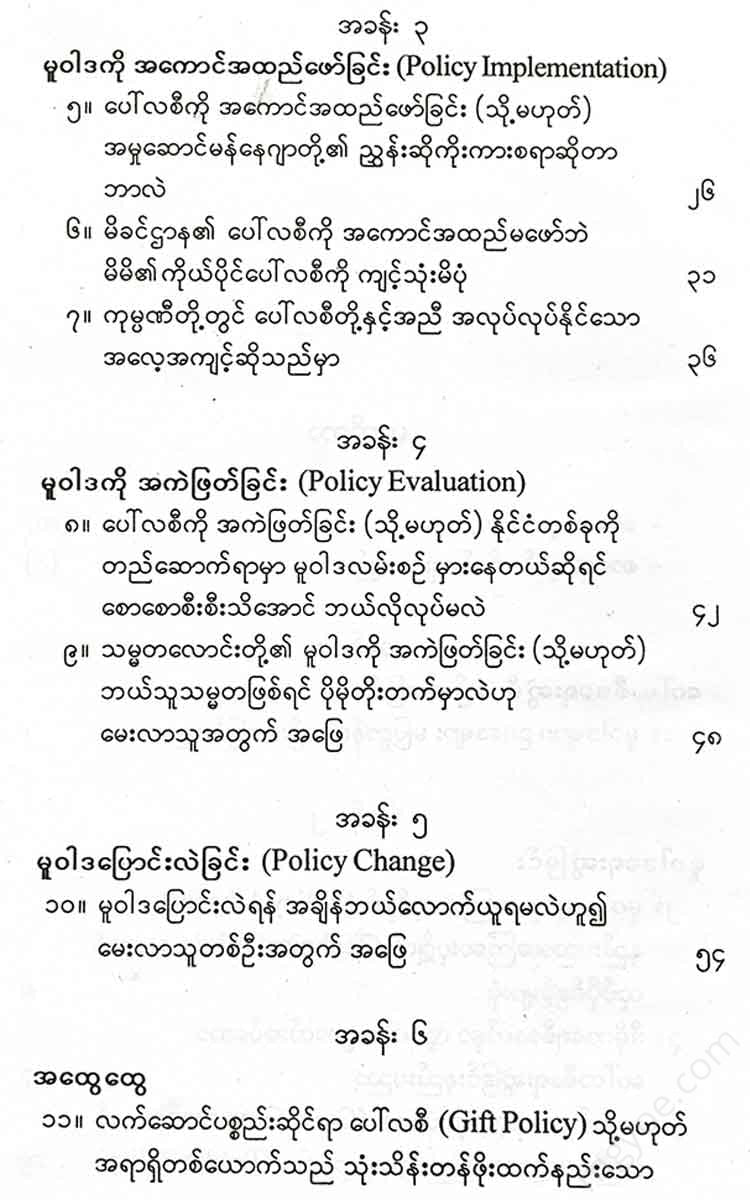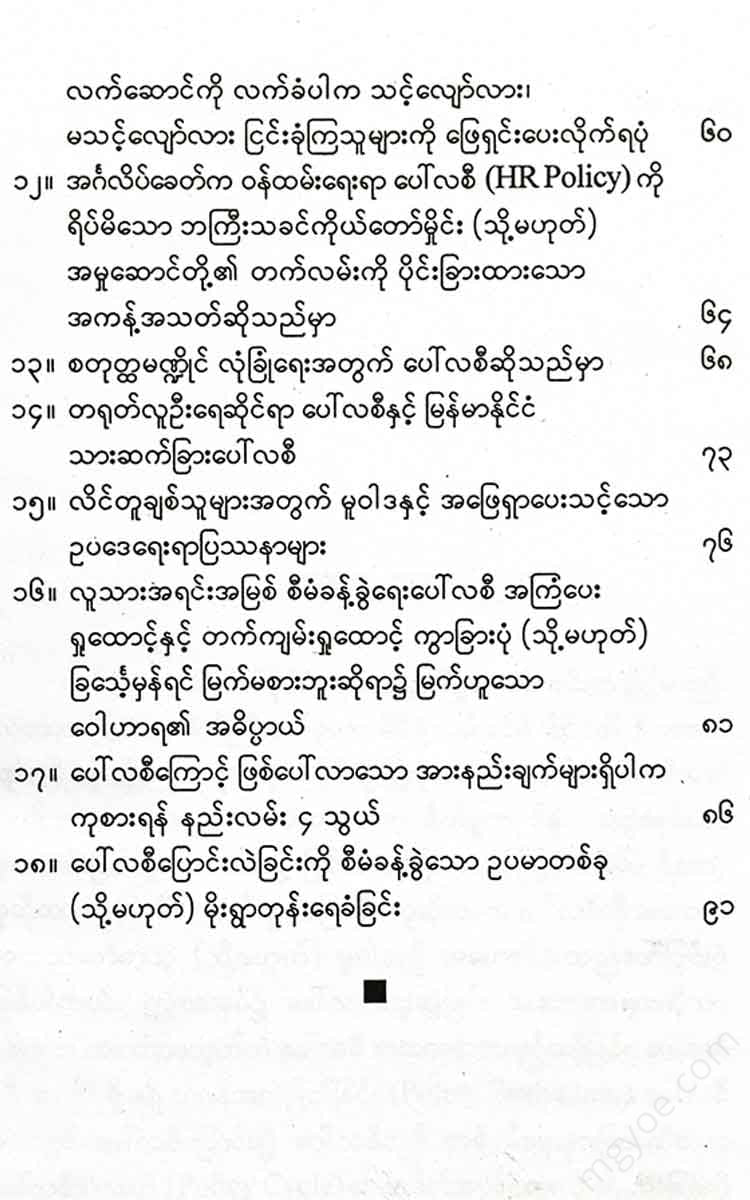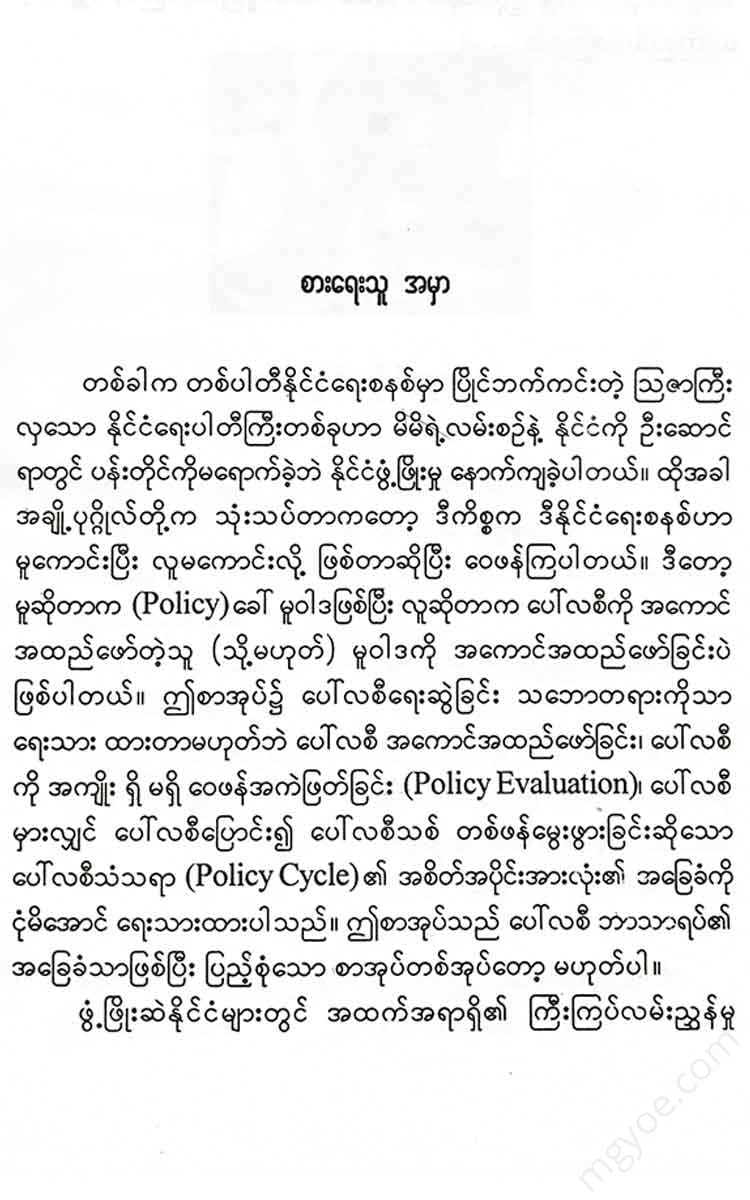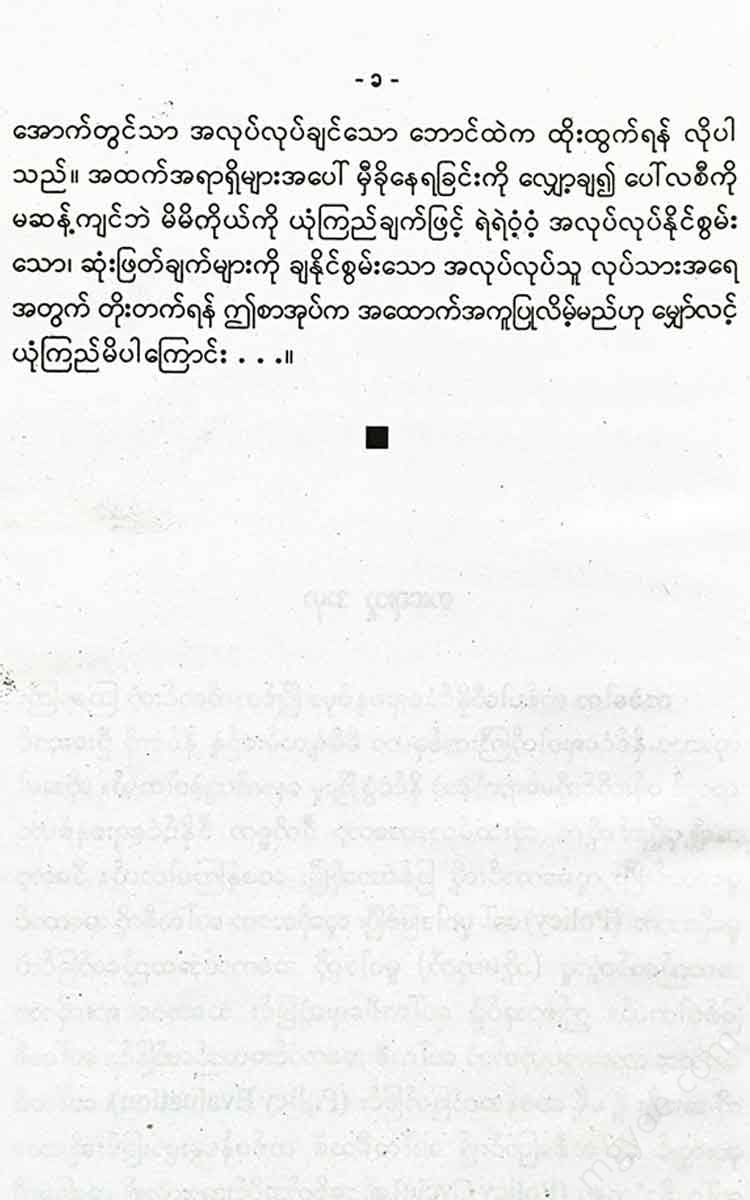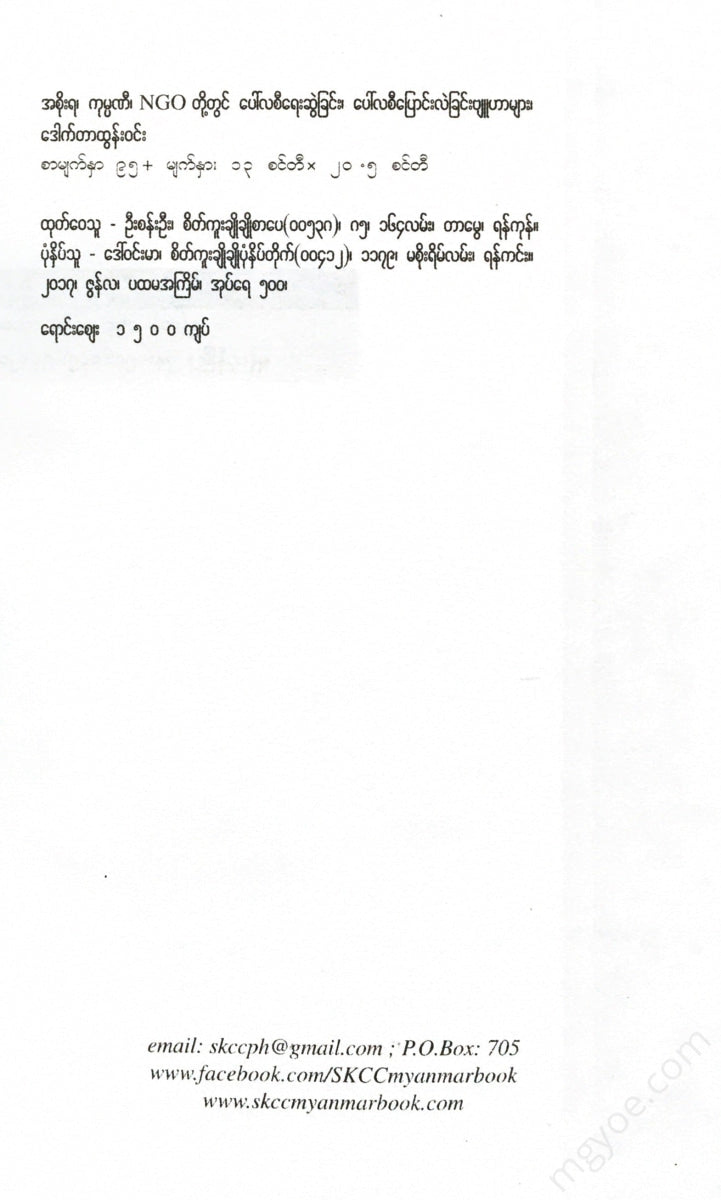စိတ်ကူးချိုချိုစာပေ
Dr. Tun Win - Policy Development and Policy Change Strategies
Dr. Tun Win - Policy Development and Policy Change Strategies
Couldn't load pickup availability
Thinking strategy before enacting policies and laws
Not just Myanmar, but every country has different laws. Here, some citizens say they want to change this law, but they don't agree with this law, etc. On the other hand, some citizens say that this law is good, but they don't want to change it, etc. So it is natural for citizens to have disagreements (or disagreements). Accepting disagreements is called Agree to disagree.
Agreeing to disagree is a characteristic of democracy. If a country has a population of 100 million, expecting all 100 million to speak with one voice is like expecting a dictatorship, so we should not expect that. However, we should try to narrow the differences from deep disagreements.
After a law is enacted, in order to narrow down the differences of opinion , it is necessary to have good law making policies. Then the laws will be in line with the Rule of Law. Then the differences of opinion about the law will be narrowed down.
So, the question arises as to how to draft legislative policies. So, the question arises as to what to do if there are differences of opinion at the policy drafting stage. Laws drafted based on different policies will not have the same meaning. Here, if I, Dr. Tun Win , become a high-minded and grandiose Policy Advisor, there will be many people who disagree with me and many who agree with me.
Among Buddhist citizens, I don't think there is anyone who disagrees with the Buddha's teachings. A coincidence about this matter is that one day, while driving, I was listening to a sermon by a great monk on the car radio. The title of the sermon was:
It is called “the policy of the Buddha’s time that established the precepts.” The Buddha established 227 precepts for the monks to follow. These 227 precepts are the law for the monks.
The Buddha said that the law is made based on the ten principles of law-making. I was still driving, so I couldn't follow the Buddha's broadcasts in writing, so I couldn't remember everything. So I had to call the monk Dhammasariyya Aung, who is my wife's cousin and brother-in-law, and ask for help. If I were to present the Buddha's response now, this is what it said.
The law enacted by the Buddha is based on the following principles.
1. The Sangha accepts the law (the law to be enacted is presented to the Sangha and the Sangha agrees),
2. The law to be enacted is to promote the well-being of the monks.
3. The law to be enacted is to suppress corrupt monks and other unscrupulous individuals.
4. The statutory law aims to ensure that monks who love virtue live in peace and prosperity.
5. The constitution aims to curb poverty in today's world.
6. The law aims to combat poverty in the afterlife.
7. The law is intended to make those who do not believe in it respect it.
8. The law is intended to make those who already respect it more respectable.
9. The constitution is to uphold the rule of law.
10. The statutory law is to uphold the law.)
The laws enacted by Buddhists can imitate the above principles. The laws enacted by ordinary people are only a few years old after they are enacted. This person wants to amend it again. This person wants to amend it again. That person doesn't want to amend it, and they are divided in their opinions.
The 227 rules of the Vinaya, which were established by the Buddha, have been in place for 2,600 years. They have remained unchanged to this day, and no one or any monk has said they want to change them, nor do they have the right to do so.
The reason why there is no disagreement is because of the solidity of the principles of lawmaking. In principle number 1, the law is presented to the monks and they agree that it is good.
It is not a matter of God deciding alone, but rather a matter of participatory decision making.
Such policies and practices are similar to the modern-day concept of Good Governance. Good Governance includes the following components:
Participatory - ( collective decision-making, collective action).
Inclusive - (no one is excluded).
Consensus - (consultation).
are some of the components of Good Governance. To give you an example of what a weak policy law is, a few days ago I read a news article in a journal that a law in a foreign country states that citizens cannot go out after 6 pm. When I read this, I thought, Oh My God. Citizens are people. People are people. If they are people, they will get headaches. The above law is a law that gives headaches without considering the peace of mind and health of citizens. I don’t know if there were any consultations with citizens before enacting this law, but I would say that it must be very strange if there are citizens who agree not to go out.
There are many things to consider when enacting a law: the law should be a law that benefits citizens, and it should be easy to follow (for example, it is not easy to live without air). It should also avoid frequent arguments and disagreements after it is enacted.
The more people who think together, the better.
Good legislative policy leads to good laws. The saying "a good start is a sure end" means that the policy should be good from the very beginning...
Vol -5 , No -230 , Feb 13-19 , 2015
The Hot News Journal
